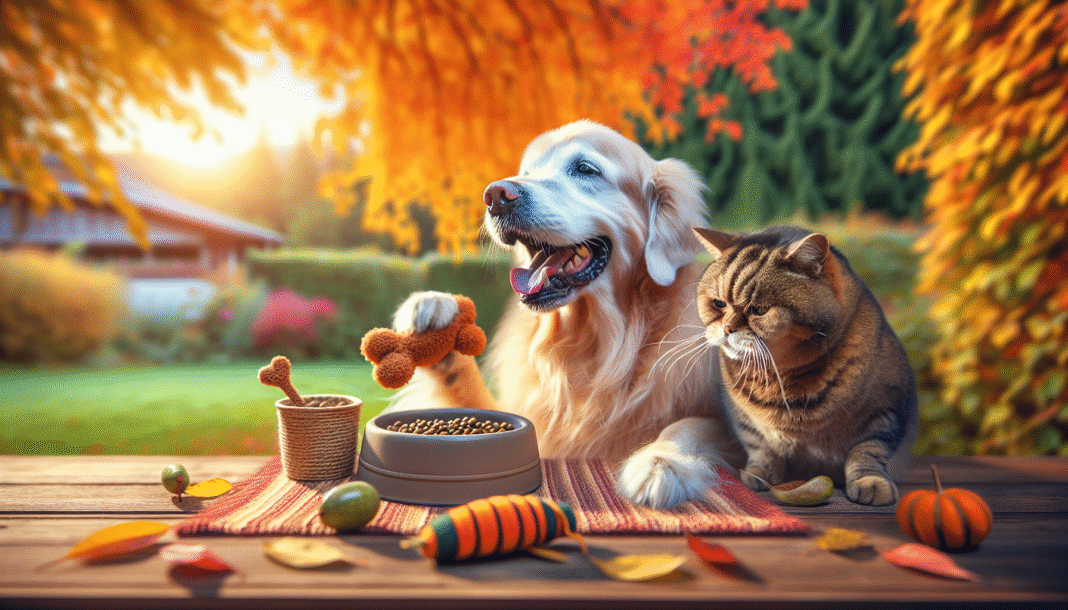Aging pets require special care, and their nutritional needs change as they grow older. Just like humans, senior pets may experience health issues that can be managed or even prevented with proper diets. Here’s a guide to the top five essential diets for senior pets to keep them happy and healthy.
1. Low-Calorie Diets
Why They Matter
As pets age, their metabolism often slows down, leading to weight gain. Excess weight can contribute to various health issues, such as diabetes, joint problems, and heart disease.
Symptoms of Overweight Pets
- Reduced mobility
- Difficulty breathing
- Reluctance to play
Dietary Changes
Switching to a low-calorie diet can be beneficial for maintaining a healthy weight. Look for specially formulated senior pet foods that offer lower fat and calorie content without sacrificing essential nutrients.
Practical Tips
- Monitor portion sizes.
- Limit treats and offer low-calorie options like carrots or green beans.
- Consult with your vet for appropriate calorie intake based on your pet’s specific needs.
2. High-Fiber Diets
Why They Matter
Senior pets often experience digestive issues such as constipation. A high-fiber diet can aid digestion, promote gut health, and help control weight.
Symptoms of Digestive Issues
- Straining during bowel movements
- Abdominal discomfort
- Changes in appetite
Dietary Changes
Opt for pet foods rich in fiber, such as those containing whole grains, pumpkins, or sweet potatoes. These ingredients not only promote digestive health but also provide a satisfying feeling of fullness.
Practical Tips
- Gradually introduce high-fiber foods to avoid gastrointestinal upset.
- Include fiber-rich fruits and vegetables as part of their diet.
3. Omega Fatty Acid Diets
Why They Matter
Omega-3 and Omega-6 fatty acids have anti-inflammatory properties, which can greatly benefit senior pets, especially those suffering from arthritis and skin problems.
Symptoms of Inflammation
- Difficulty moving or reluctance to exercise
- Itchy or flaky skin
- Chronic ear problems
Dietary Changes
Consider foods that are rich in Omega fatty acids, such as fish oil, flaxseed oil, or specialized veterinary diets. These nutrients can help improve joint health and promote a shiny coat.
Practical Tips
- Speak with your vet about appropriate supplementation if your pet’s diet lacks these essential fatty acids.
- Incorporate fish into their diet a few times a week if your pet tolerates it.
4. Antioxidant-Rich Diets
Why They Matter
As pets age, their bodies become less efficient at fighting off free radicals, which can lead to various diseases. Antioxidants help support the immune system and reduce the risk of chronic diseases.
Symptoms of a Weak Immune System
- Frequent infections
- Poor coat quality
- Lethargy
Dietary Changes
Select foods packed with antioxidants like blueberries, cranberries, vitamin E, and green tea extracts. These elements not only combat aging effects but also improve overall health.
Practical Tips
- Include a variety of colorful fruits and vegetables in their meals, keeping in mind those that are safe for pets.
- Ensure that their regular diet includes high-quality, nutrient-dense ingredients.
5. Special Veterinary Diets
Why They Matter
Certain health conditions in senior pets necessitate specific dietary changes. For instance, pets with kidney disease require a controlled protein diet, while those with heart issues might benefit from reduced sodium intake.
Symptoms of Health Issues
- Increased thirst or urination
- Fatigue or weakness
- Changes in breath odor
Dietary Changes
Veterinary diets are tailored to specific health concerns and can improve quality of life. Consult your veterinarian for specific dietary recommendations based on your pet’s health issues.
Practical Tips
- Don’t switch to a veterinary diet without a vet’s advice.
- Monitor your pet’s condition regularly and adjust their diet as needed under veterinary guidance.
Tips for Transitioning Diets
Transitioning your senior pet to a new diet should be done gradually. Sudden changes can lead to digestive upset. Here are some strategies:
- Day 1-3: Introduce the new food in small amounts, mixed with the old diet.
- Day 4-7: Slowly increase the proportion of the new food while decreasing the old.
- After a week: Evaluate how well your pet is adjusting before making further changes.
Pet Hydration Matters
Alongside diet, ensure that your senior pet stays hydrated. Fresh water should always be available. For some pets, adding moisture to their diet through wet food or broth can encourage hydration and support kidney health.
By understanding and adapting to the evolving nutritional needs of your senior pet, you can help them enjoy their golden years with vitality and joy. Consulting a veterinarian for personalized advice is always a crucial step in keeping your aging companion happy and healthy.





